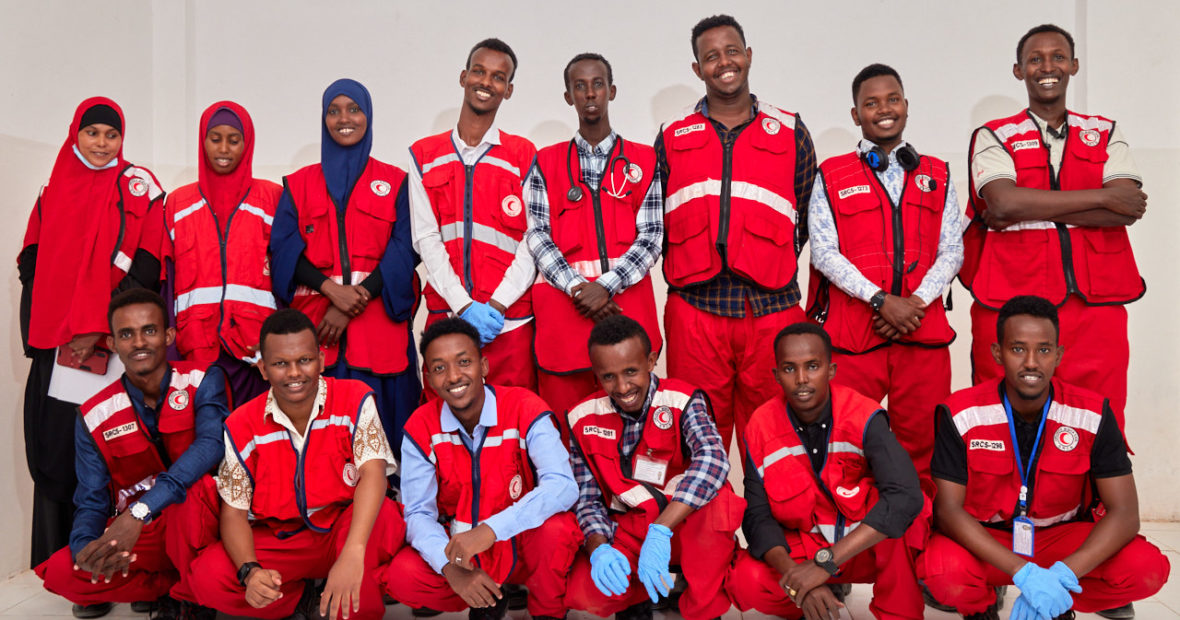Today, the International Red Cross and Red Crescent Movement celebrates the dedication, compassion, courage and impact of millions of volunteers and countless others who offer help and life-saving services to people in their communities.
The Somali Red Crescent Society (SRCS) or Bisha Cas, as it is popularly referred to as locally, has been supporting communities with first and emergency ambulance services, health care services through its hospital and clinics, physical rehabilitation centres. The SRCS is also reconnecting families with their missing loved ones through the Restoring Family Links (RFL) program. All these programs are implemented with the support of the International Committee of the Red Cross (ICRC).
In a message to mark World Red Cross and Red Crescent Day today, SRCS President, Yusuf Hassan Mohamed said, “With its network of 19 branches and volunteers, the Somali Red Crescent Society responded to crises in the country including the Covid-19, drought, conflict and floods.”
“The SRCS reaches more than three million people every year with a diverse range of services tailored to local needs,” he added.
The Red Cross and Red Crescent Movement is comprised of the International Committee of the Red Cross (ICRC), the International Federation of Red Cross and Red Crescent Societies (IFRC), and 192 National Societies with 14.9 million volunteers. It’s estimated that one in every 524 people in the world is a Red Cross or Red Crescent volunteer.
Bisha Cas in Action
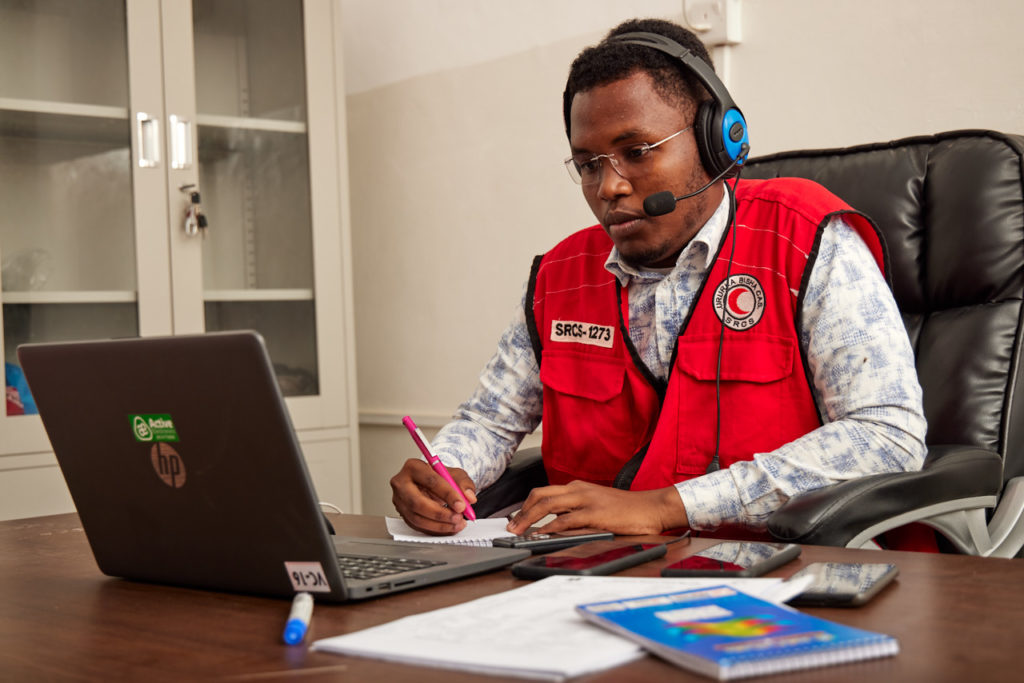
This year, the SRCS expanded its emergency ambulance service to cover Laascanod and Galkacyo towns. People in need of emergency medical services in Laascanod and Galkacyo can now call 936 and 383 respectively. This is a 24-hour toll free number to receive emergency medical help.
Mogadishu – Call 446
Laascanod – Call 936
Galkacyo – Call 383
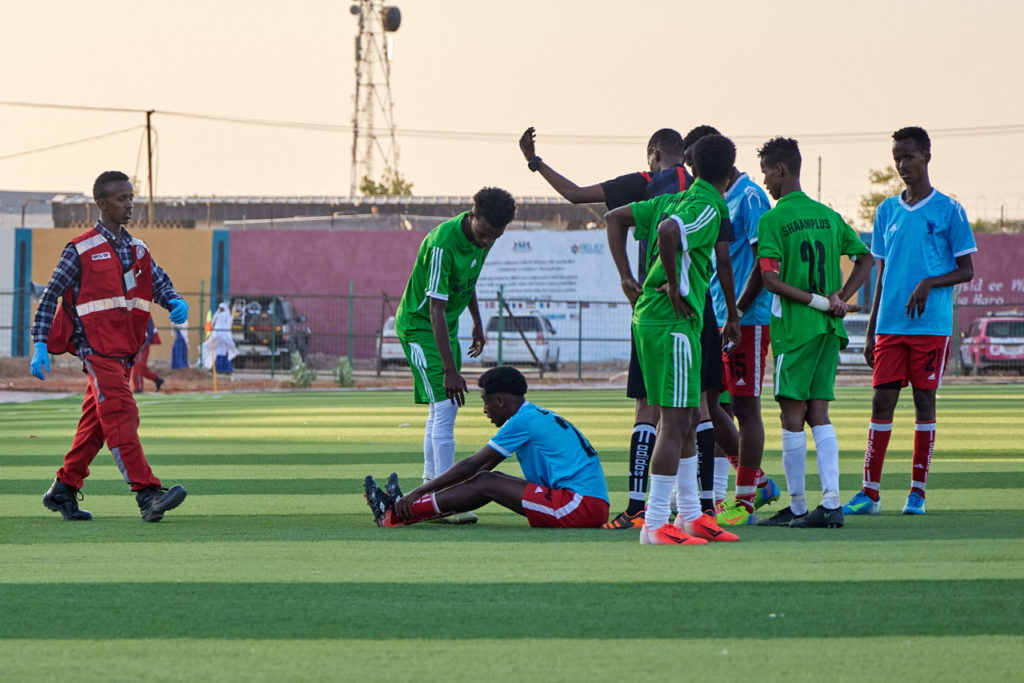
The SRCS is well known for their first aid support to communities. The SRCS first aid teams have become a permanent fixture during local events like the football matches that take place during the weekends. 308 volunteers received first aid trainings this year.
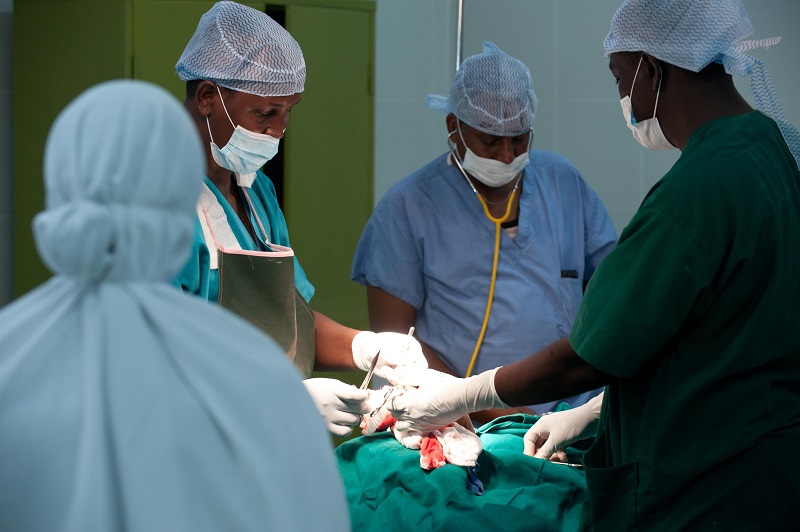
The Keysaney hospital in Mogadishu, this year, marked its 30th anniversary. The hospital, run by the Somali Red Crescent Society (SRCS) with the support from the International Committee of the Red Cross (ICRC), first opened its doors in 1992, at the height of Somalia’s civil war. The ICRC transformed the building, which was originally a prison, into a hospital and staffed it with surgical teams who attended to war-wounded casualties. The facility continues to attend to weapon-wounded cases to this day.
Clinics and nutrition
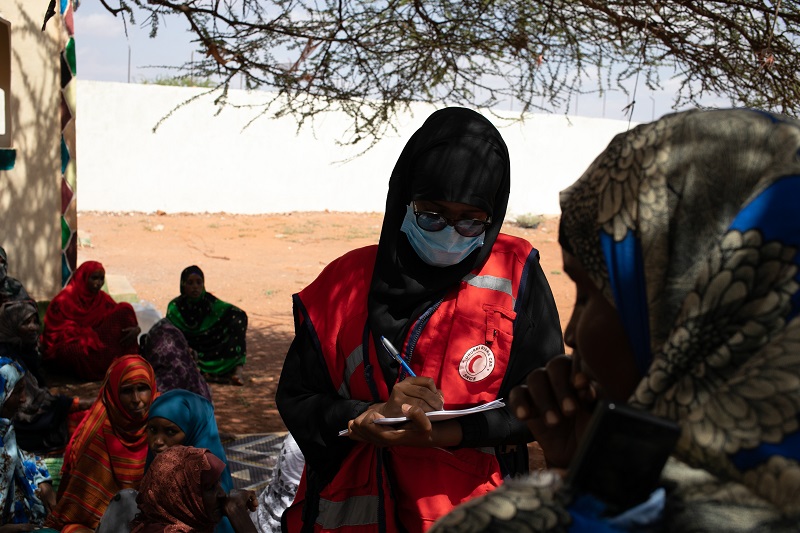
Today, the SRCS has 26 clinics across the south and central part of Somalia, including two that are mobile. The clinics provide primary health care and nutrition services especially for women and children. Some of the common diseases treated in the clinics are malnutrition and acute water diarrhea (AWD).
Physical rehabilitation centre
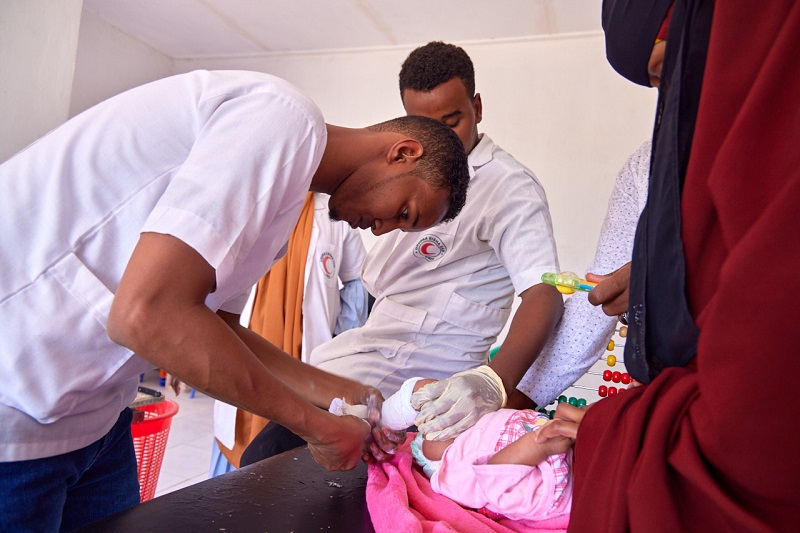
Bisha Cas also runs three physical rehabilitation centres across the country. The largest centre is in Somalia’s restive capital, Mogadishu, and has been in operation for over 40 years. The other two centres are in Galkacyo and Hargeisa.
Clubfoot, a common condition where both feet of a child turn inwards, is also treated in the centres. The centres offer physiotherapy and have workshops where prosthetics are made.
Restoring Family Links
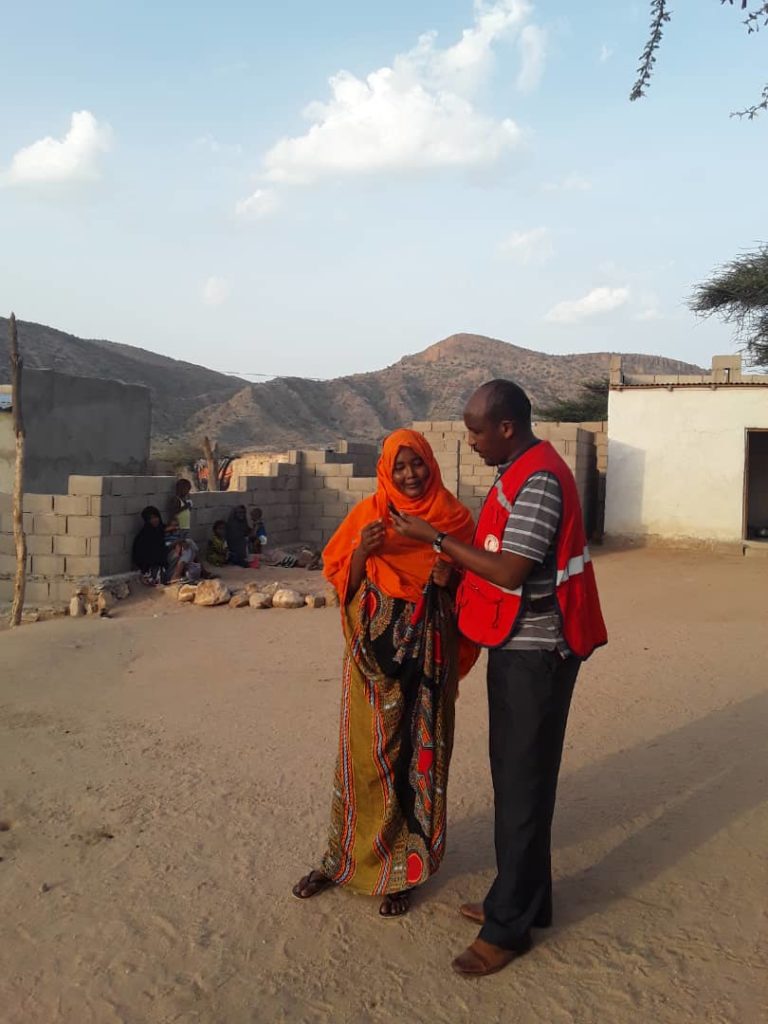
A key component of the SRCS’ work is re-connecting families with their missing loved ones. They do this through the BBC radio’s Baafin programme, exchange of Red Crescent Messages (RCMs) and providing phone call services to restore contact.
48,296 phone calls and 34,813 RCMs were exchanged between January and March this year.
World Red Cross Red Crescent Day statement by SRCS President


